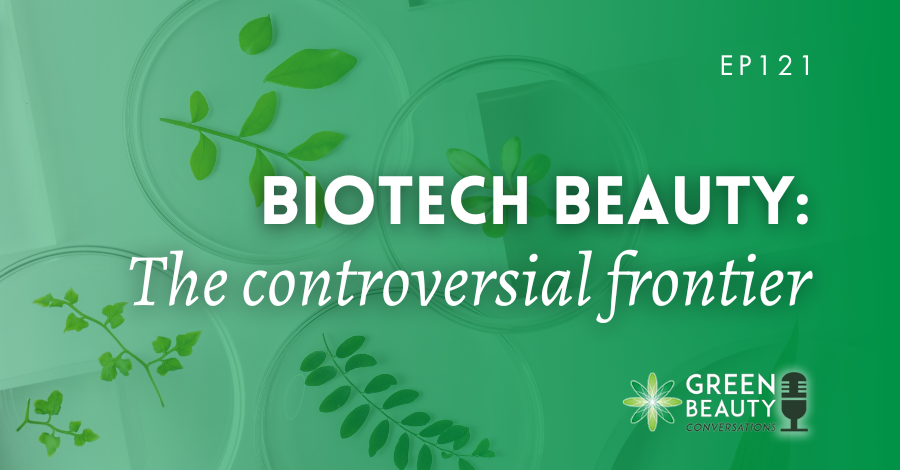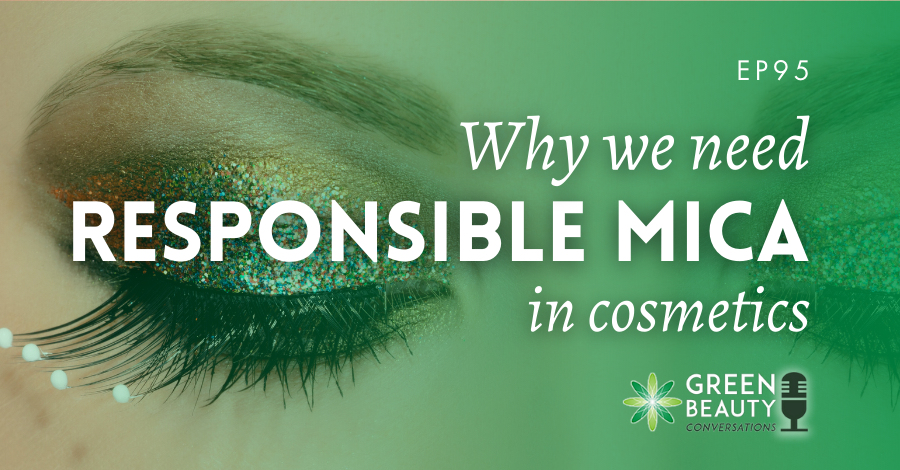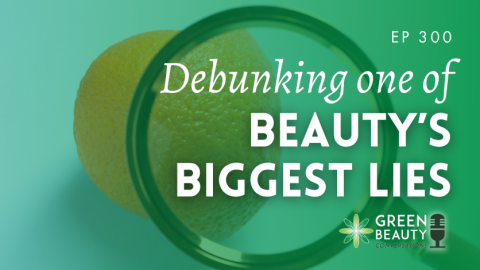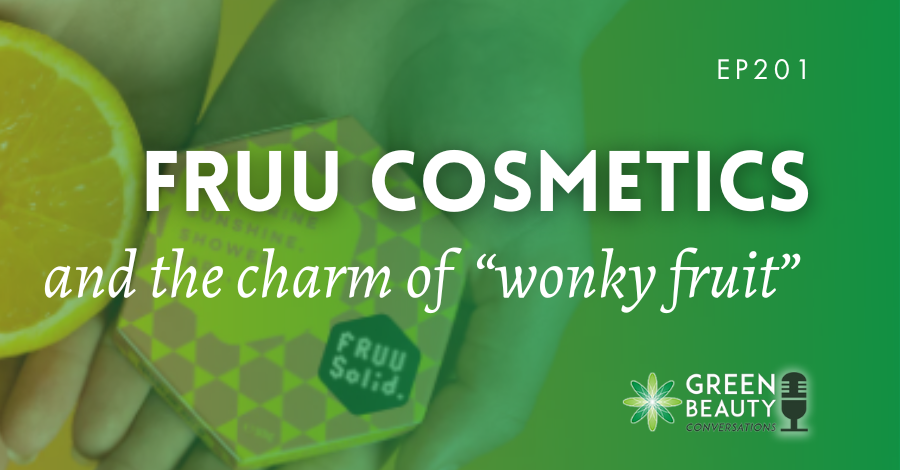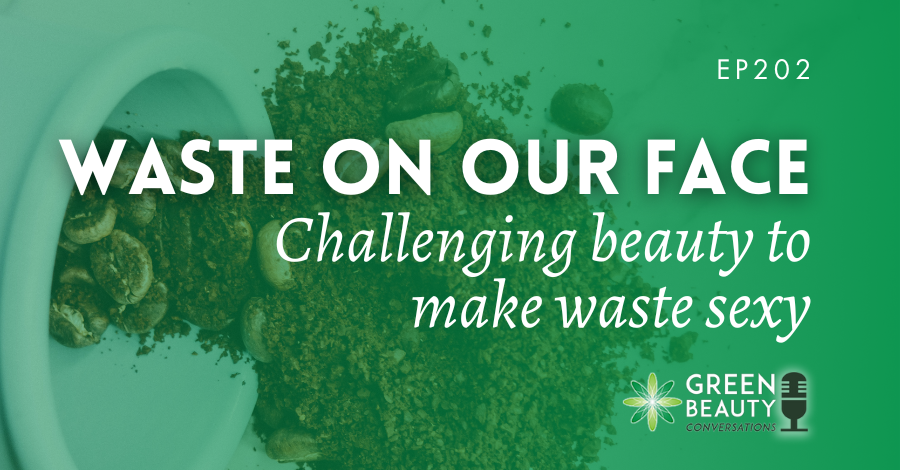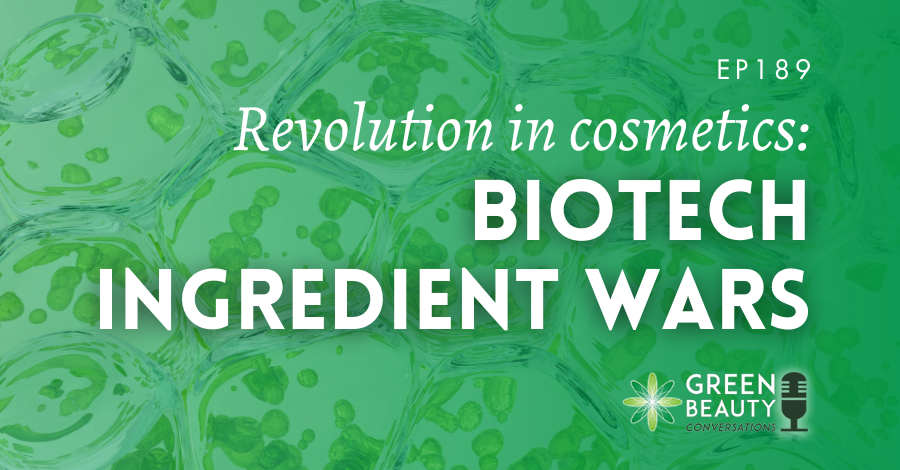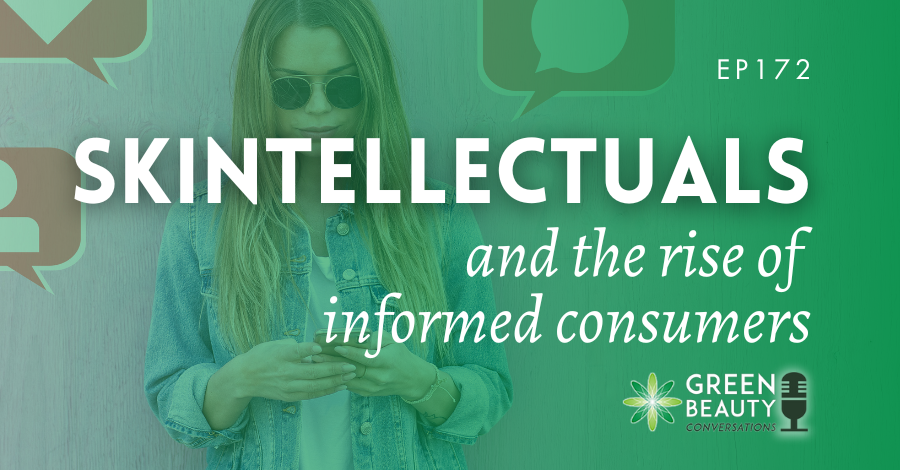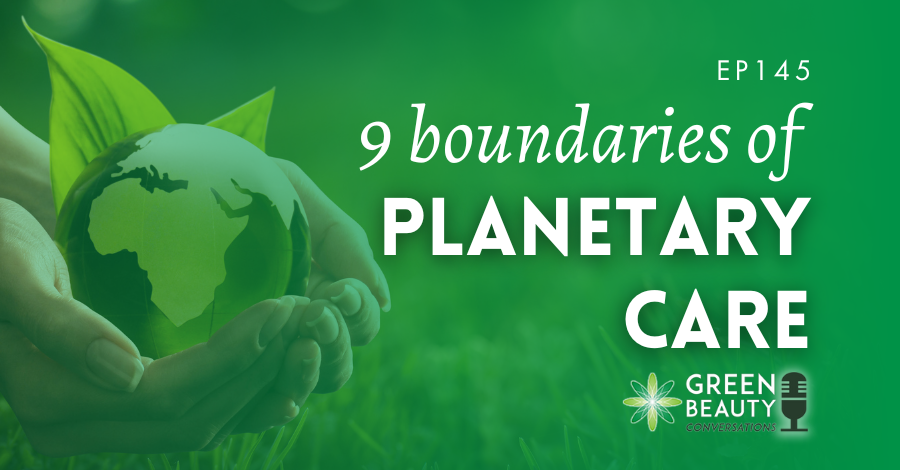The natural and organic cosmetics world loves sourcing the purest, sustainable plant-based ingredients that are ethically picked, plucked, farmed and harvested, and processed with as little artifice as possible. On this podcast, we have covered a raft of natural ingredient sourcing and formulation concepts from wild-harvesting and biodynamic farming to blue, waterless and upcycled beauty.
All of these topics, we have assessed through the lens of sustainability. While an ingredient may be natural, its use in cosmetics from field to formulation may not be sustainable. It is worth reiterating and remembering this as we tackle the topic of this episode of Green Beauty Conversations – biotech beauty.
Listen in to this eye-opener on biotech which, given current climate change predictions, could be the new normal for sourcing natural, and even organic, cosmetic ingredients sooner than you think.
Biotech beauty, a breakthrough the planet needs or the antithesis of natural organic cosmetic formulation? @FormulaBotanica podcast talks to @CodexBeauty #biotech #biotechbeauty #DrBarbaraPaldus Share on X
We’ve all heard of meat being ‘grown’ in labs, so it will come as no surprise that plant cells can be cultured in labs too. The next most potent, active botanical is possibly being engineered from plant stem cells using biotech right now, as a breakthrough natural cosmetic ingredient.
Does the sound of lab-grown plant actives in your cosmetics excite you or worry you? Is it too futuristic or something you’d adopt willingly right now? How receptive would you be to using biotech-based ingredients if your idea of natural organic cosmetic ingredients is their farming or wild harvesting from forests and fields?
The truth is that biotech beauty is happening now, and is gaining momentum – in part as an answer to some of the key sustainability issues surrounding the farming of crops as cosmetic ingredients. To give us insights into the world of biotech beauty, Formula Botanica CEO and podcast host Lorraine Dallmeier, herself a biologist and chartered environmentalist, talks to Dr Barbara Paldus of Codex Beauty, a firm pioneering biotech cosmetic formulation.
In this episode on biotech beauty, you will hear:
- The definition of biotech beauty, which is a branch of lab biology that uses living organisms to develop cosmetic ingredients of interest such as peptides, enzymes and proteins. It harnesses plant stem cells and cultures them to produce billions of active cells as potent cosmetic ingredients.
- Why biotech cosmetic ingredients can be less wasteful and more sustainable to produce than their field-grown counterparts. A whole plant may be grown simply for the use of one part of it such as its petals, leaves or sap, with the rest wasted at cost to the planet in terms of carbon footprint. Biotech grows only the plant active required, with no wastage involved.
- That biotech ingredients are free of contaminants from pollution, acid rain, heavy metals, insects, moulds and so on.
- Why biotech ingredients can be considered organic by default as they are grown without the use of pesticides in closed container environments. They could be considered an even higher standard of purity than field-grown, plant-based ingredients.
Key takeouts include:
- Biotech cosmetic ingredients are still new concepts and there is more education to be done among brands and consumers to see them more widely accepted and embraced. Some political and farming lobbies are worried about the growth of biotech.
- Biotech ingredients are not synthetic – they are grown from plant cells and simply reproduce that same original cell millions of times over. But there is still controversy over whether biotech beauty ingredients are natural.
- As Dr Barbara Paldus says: “There are people who think the world is flat”. Using biotech remains a personal and philosophical choice all the time naturally-grown plant ingredients exist, but the day is coming when climate change will predicate the need for biotech to be adopted as a more sustainable route to the sourcing of some ingredients.
- Codex Beauty’s products range is approximately 50% biotech ingredient based. Some natural ingredients like plant oils remain at the moment more economically viable extracted from crops.
Meet the guest: Dr Barbara Paldus

Codex Beauty Labs was conceived with dermatologists and ethnobotanists to deliver affordable, high-efficacy skincare that supports the microbiome and delivers the healthiest of skin, without sacrificing sustainability. From formulation to packaging, she’s created a line that puts the plant-power back in your hands—with the clinical results to back it up.
Find out more at:
Codex Beauty Labs website
Thank you for joining us for this episode of the Formula Botanica Green Beauty Conversations podcast. If you enjoyed listening, please share, subscribe and review this episode on Apple Podcasts, Spotify or Youtube so that more people can enjoy the show. Don’t forget to follow and connect with us on Facebook and Instagram.
FREE TRAINING
Learn how to become an
Organic Skincare Formulator
FREE TRAINING
How to become an
Organic Skincare Entrepreneur
FREE TRAINING
How to become an
Organic Skincare Entrepreneur
Leave us a comment
Lorraine Dallmeier is a Biologist, Chartered Environmentalist and the CEO of Formula Botanica, the award-winning online organic cosmetic science school. Read more about Lorraine and the Formula Botanica Team.

